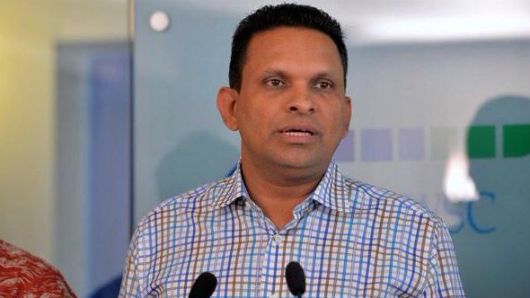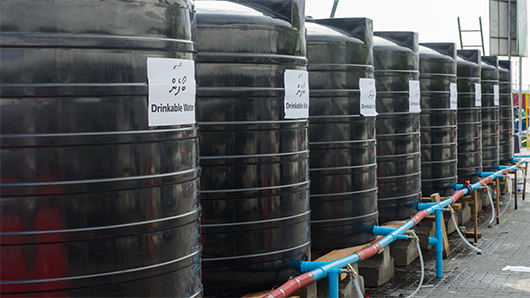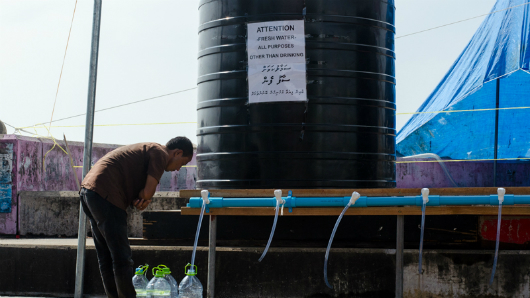The Inter Parliamentary Union (IPU) has revealed that the Maldives accounts for 35 percent of all its human rights cases concerning Asian MPs.
“Maldives has a very high number of MPs (27) with cases before the Committee. Arbitrary detentions and violations of freedom of expression are the most common complaints reported, followed by torture, ill-treatment and other acts of violence,” said the IPU.
The union’s ‘Human Rights Abuses of MPs – 2014′ report – released to mark Human Rights Day (December 10) – shows that Africa and Asia are the most dangerous regions for parliamentarians.
Earlier this year, the union had suggested that the authorities’ response to the growing number of threats against MPs would represent a test of the Maldives’ democracy.
The union emphasised the “high price parliamentarians are paying to defend fundamental human rights and exercise their right to freedom of expression”.
Despite being the smallest country in Asia, the Maldives made up 27 of 78 parliamentarians from 12 countries in Asia who have cases lodged with the IPU’s human rights committee.
Previous statistics from the IPU show that the global average number of inhabitants per parliamentarian is 146,000. With 85 MPs, the Maldives’ 2014 census shows the country has 1 MP for every 4,014 inhabitants.
In October, opposition Maldivian Democratic Party (MDP) MP Eva Abdulla – the first Maldivian member of the IPU – met with the committee to raise concerns over the personal safety of parliamentarians and journalists in the Maldives.
At the time, Eva highlighted the lack of thorough investigations in cases of threats and assault, perpetrators not facing trial, the failure of law enforcement, the failure of the parliament to look into cases, and the creation of a culture of intimidation in the Maldives.
In a year in which MDP MP Alhan Fahmy narrowly avoided paralysis following a stabbing, threats against MPs and their families have become commonplace.
In October, the Maldives National Defence Force temporarily offered MPs additional personal security as well as urging Majlis members not to go out at night time unless absolutely necessary.
The IPU’s list of Maldivian cases also included the late Progressive Party of Maldives MP Dr Afrasheem Ali, brutally murdered outside of his home in October 2012.

Cases from around the world
The IPU explained that 311 parliamentarians from 41 countries had cases referred to the IPU Committee in 2014 – a 13 per cent increase from 2013, which saw 270 parliamentarians lodge cases, from 40 countries.
The most common human rights complaints are arbitrary detention, lack of fair trial, violation of freedom of expression and unlawful suspension and loss of parliamentary mandate.
Other dangers faced by parliamentarians include death, torture, threats and arbitrary arrests, explained the IPU
As per the 2014 statistics, the highest number of parliamentarians who have lodged cases at the committee are from Africa with 38 per cent, followed by Asia with 25 per cent.
Middle East and North Africa have 18 percent, while the Americas have 14 percent, and Europe 5 percent.
71 percent of these parliamentarians are from opposition parties, and 89 percent are male.
“These figures are extremely worrying as they show that all over the world MPs face serious harassment and sometimes even death, in a clear attempt to intimidate and silence critical voices and dissent,” said IPU Secretary General Martin Chungong.
“The figures we are presenting today are cases reported to IPU, but there are other abuses that remain beyond our scope, as the Committee can only intervene at the request of the MP concerned, family members, legal representatives, fellow MPs or human rights organisations,” he continued.
The statement reads that the majority of cases have been under the committee’s consideration for less than five years, while 10 percent of the cases are from more than 10 years ago, and another 5 percent date back to the 1990s.
It also notes that 101 new decisions were adopted by the IPU this year, calling on authorities of the relevant countries to “take effective steps towards a satisfactory settlement of the cases”.
Of the 314 cases, 71 are new cases involving parliamentarians from the Maldives, Cambodia, Colombia, Democratic Republic of Congo, Ecuador, Iraq, Israel, Oman, Palestine, Venezuela and Zambia.
The Committee also closed cases involving 12 parliamentarians in 2014.
Related to this story
Government’s reaction to death threats is a test of democracy: IPU
Inter-Parliamentary Union requests urgent visit to Maldives
Opposition MP Alhan Fahmy stabbed
MPs urged to stay in at night as MNDF offers personal security



